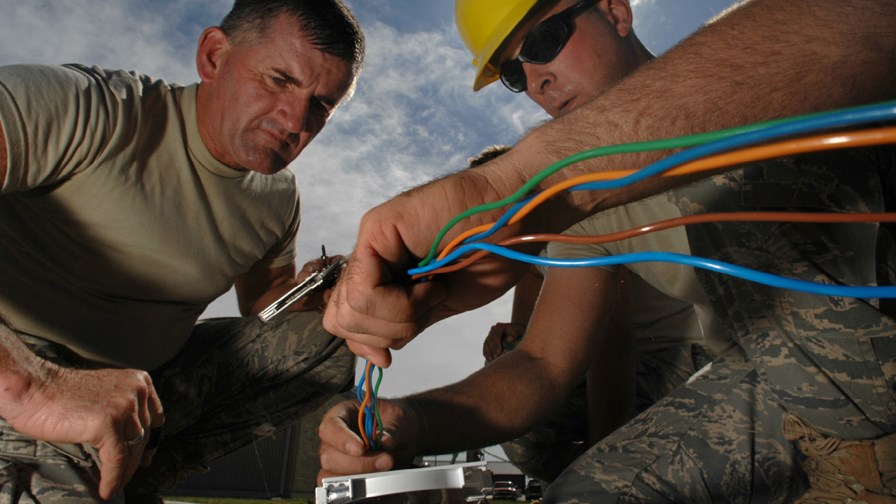
via Flickr © Kenny Holston 21 (CC BY-ND 2.0)
- €2 billion extra to be spent on passive fibre build (and associated costs)
- Vodafone is touting gigabit services in three separate schemes
- Is offering capital cost-sharing and success-based profit sharing to rope in partners
Vodafone Germany says it’s going to invest around €2 billion extra on ultrafast fibre broadband in Germany (above what it was already planning) by the end of 2021. The accelerated fibre plan appears to be a response to heightened competition to bag an extensive fibre broadband footprint in Germany, spurred on by the perceived fibre tardiness of Deutsche Telekom which has placed a major bet on an alternative broadband access technology - vectored DSL - to reuse its sunk investment in the copper access network.
Today’s announcement highlights the fact that even operators with their roots in mobile know with increasing certainty that 5G alone won’t be enough. Owning fibre infrastructure will be key to feed high-speed data to and from their radio endpoints. Also, in both business and domestic markets, 5G or not, customers will likely continue to rely heavily on fixed broadband - not least to use public spectrum to augment licenced services indoors.
Vodafone has a long-standing masterplan to become a converged operator (fixed broadband and mobile) in Europe. In Germany it acquired German cable operator Kabel Deutschland, in 2013 for $10 billion, and three years ago it purchased Spanish fixed broadband and pay-TV operator Ono for €7.2bn, a deal it said was complementary to its already ongoing FTTH programme there.
The €2 billion boost in Germany will fund what Vodafone Germany is calling its ‘Gigabit Investment Plan’, which sets out to deliver 13.7 million Gigabit connections for both consumers and businesses. At present 25 per cent of Germany’s broadband connections are below 50 Mbit/s and only 2 per cent at the gigabit level although it says the numbers show this is changing fast as businesses scramble to take up gigabit services.
To get itself into the desired position Vodafone is sharing risk and upfront capital costs (where it can) with partners and hopes to ink multiple deals such as that recently concluded with fibre-to-the-premises specialist Deutsche Glasfaser, under which it will reach 19 of Düsseldorf’s industrial and commercial business parks by early 2018.
Ideally Vodafone would like to reach 100,000 companies in around 2,000 business parks by the end of calendar 2021, at a cost of approximately €1.4-€1.6 billion, and it plans to rope in partners with either specialist fibre skills or relevant infrastructure assets, to help it get there. Under these agreements, the partner (and in some cases Vodafone itself) will deploy the passive fibre infrastructure; Vodafone will operate the resulting network and supply services to the customers, but over the longer term it plans to take full ownership of the passive infrastructure. It says his approach will prove cash-efficient because it limits the upfront cash outflow to around one-third of the total build and CPE costs.
It also plans what it’s calling its Giga-Municipality. With this programme it plans to offer gigabit services to around one million consumer households in rural areas - in co-operation with local municipalities - by the end of calendar 2021. Again, this will be a co-investment model under which the local municipality will build and own the passive network - hopefully bagging government fibre subsidies in the process. Build-outs will only begin once around one third of the homes in a municipality have committed to buy fibre services and Vodafone will operate the network under a long term partnership/rental agreement.
Finally, Giga-Cable will see Vodafone’s upgrade its entire cable footprint in Germany from its current top speed of 500 Mbit/s to 1Gbit/s in just two years (as opposed to the four years in its previous plan).
“The project is consistent with our strategic goal to become a leading converged communications operator in Germany,” says Vodafone Germany CEO, Hannes Ametsreiter. “I am confident that these largely success-based investments will deliver incremental revenue growth and attractive returns for Vodafone’s shareholders.”
Email Newsletters
Sign up to receive TelecomTV's top news and videos, plus exclusive subscriber-only content direct to your inbox.




